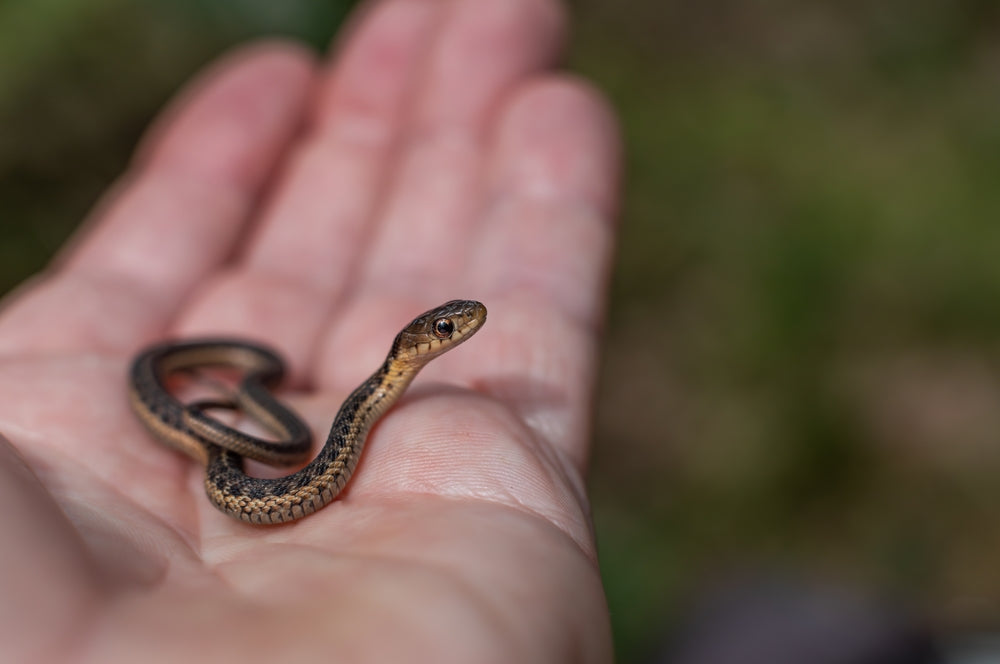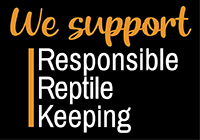Can You Keep a Wild Reptile as a Pet

So…you were out herping and found something REALLY cool that you totally fell in love with and now you feel like you HAVE to bring it home. You’re here because something at the back of your head nagged you into giving it a Google before taking that plunge. Or maybe you just really admire your local wildlife, and so you want to know if it’s possible to just collect one for free from outside rather than having to buy one from a breeder. Either way, you’re in the right place!
Unfortunately, taking reptiles from the wild is not as good of an idea as you think it is.First, it’s often illegal to take reptiles from the wild. This means that if you get caught, you will have to surrender the animal regardless of how well you’re taking care of it. Furthermore, it can also be illegal to release a wild-caught reptile back into the wild, even if you take it to the same place where you caught it. So if you are counting on only “borrowing” that animal for a little while before “giving it back” to nature, that isn’t going to work.
Collecting from the wild threatens wild populations and imbalances ecosystems. Granted, one or two isn’t a problem, but be real: you’re not the only one who has had this idea, and you won’t be the last, either. When hundreds of animals are removed from the wild under the justification that “it’s just one,” ecosystems and populations can be thrown into serious imbalance.
Wild-caught reptiles are more likely to get sick. They have higher parasite loads and may transmit diseases to other reptiles in your care. Additionally, the stress of relocation can depress their immune system, which means that even if they seemed perfectly healthy at first, they can become seriously ill and require intensive veterinary care. However, this veterinary care may come too late to be effective.
Wild-caught reptiles are more difficult to care for. Wild reptiles take a long time adjusting to captivity and tend to be less tolerant of husbandry errors. If you’re caring for a wild-caught reptile, your husbandry needs to be essentially perfect for it to thrive. If you’re not confident that you can meet this need, you will be giving it a lower quality of life than it had in the wild.
Humans stress out wild reptiles. Wild reptiles are generally very stressed by interaction with humans, and even the sight of humans can set them off. If you were hoping to play with this animal like a pet, get a well-socialized captive-bred individual instead. The animal’s need for environmental enrichment and hands-off enrichment activities is also likely to be higher in order to prevent the animal from developing negative “stereotype” behaviors like incessant pacing, glass-dancing, or extreme lethargy.
Venomous reptiles are dangerous and expensive to keep. While venomous species are super cool, chances are that you’re not equipped to care for one properly or safely. Permits are often required to keep ones (depending on the state), even for captive-bred animals. More prohibitive still, you will need to keep an appropriate amount of antivenin on hand in case of envenomation — and antivenin is VERY expensive.
Here's what to do instead:
Do some research on the animal you’re interested in. Often, that urge to take a wild animal as a pet actually stems from simple curiosity. What does it eat? What does it do all day? What does it look like when it’s moving? These questions and more can be satisfied with some in-depth reading of formal and informal literature on the subject, looking at pictures on databases like iNaturalist, and watching video footage that others have taken. You may be surprised to find how well a bit of research can scratch that itch!
Find a captive-bred member of the same species. Still obsessed? If you’ve done your research and you think you’re up to the task of caring for one, see if you can find an expert who breeds them. That way you’ll be able to get the animal of your dreams, and the animal will already be acclimated to humans and captivity, so you’ll likely have a more rewarding experience!
Adopt or foster the same species from a local wildlife rescue or sanctuary. Can’t find a breeder? Whether it’s out of lack of interest or there simply isn’t enough information on captive care available, there are a lot of species that hobbyists haven’t figured out how to breed yet. Fortunately, there are many wildlife rescues and sanctuaries that take in wild-caught reptiles which can’t be returned to the wild. One just might be willing to let you care for one of these animals if you can prove that you can give it a good home.
Conclusion
Taking a reptile out of the wild can feel like you’re doing it a favor or “saving” it because it won’t have to worry about predators or starvation. However, this is far from the case. When reptiles are taken from the wild, they can end up stressed and with a lower quality of life than they had before. This is the last thing you want to do to an animal that you clearly admire so much. If you’re really committed and confident that you can care for one of these animals properly and for its entire life, look into getting a wild collection permit from your state government.
Written by Mariah Healey, ReptiFiles.com
- Rebekah Walenta










